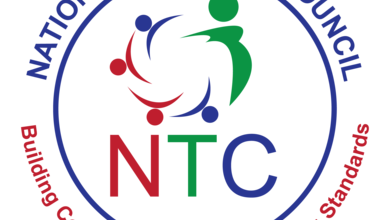New Teacher Lesson Observation/ Supervisory Requirement in Ghana 2024
New Teacher Lesson Observation/ Supervisory Requirement in Ghana
With the advent of the PLC (Professional Learning Community) and the establishment of National Teaching Standards (NTS), Ghana has introduced essential supervisory requirements for Teachers and Teacher Trainees.
These guidelines aim to enhance the quality and relevance of teaching and learning, emphasizing experiential sharing, Gender Equality and Social Inclusion (GESI), Information Communication Technology (ICT), and 21st Century Skills integration.
As a teacher in Ghana, it’s crucial to be well-versed in these requirements, as supervisors will assess your adherence to them.
Supervisory Expectations:
Clarity of Lesson Purpose:
Check; Is the purpose of the lesson clearly stated in the lesson plan and focused on learners achieving the lesson learning outcomes?
Ensure that the lesson plan clearly articulates its purpose and aligns with the intended learning outcomes for the students.
Inclusive Teaching:
Check; Are the unique needs of female learners, male Learners, and learners with specíal education needs adequately catered for in the lesson plan? For example, the choice of teaching methods, and learning activities.
Address the unique needs of diverse learners, including females, males, and those with special education requirements, by tailoring teaching methods and activities accordingly.
Positive Learning Environment:
Check; Does the teacher maintaín a positive and non- threatening learning environment throughout the lesson?
Maintain a positive and non-threatening classroom environment throughout the lesson to facilitate effective learning.
Resource Utilization:
Check; Are teaching/learning materials and other resources including ICT being used to support learning of all categories of learners?
Utilize teaching and learning materials, including ICT, to support the educational needs of all students.
Engaging Learning Tasks:
Check; Are learners engaged on tasks that challenge them and dermonstrate the teacher’s high expectation of learner achievement? Does the teacher take into consideration the uniqueness of learners?
Design tasks that challenge students and reflect high expectations for their academic achievement while considering individual learner characteristics.
Evidence of Learning:
Check; Is there evidence that students are learning?
Demonstrate that students are actively engaged and making progress in their learning during the lesson.
Differentiated Instruction:
Check; Is teaching differentiated to cater for the varied needs of all male learners, female learners, learners with special education needs and those with poor literacy and/ or numeracy proficiency?
Adapt your teaching methods to cater to the diverse needs of male and female students, learners with special education needs, and those with varying levels of literacy and numeracy proficiency.
Real-World Relevance:
Check; Does the teacher use real life exanples which are familiar to learners to explain concepts and
their relevance?
Incorporate familiar real-life examples to explain concepts and emphasize their practical significance.
Addressing Gender Roles:
Check; Does the teacher point out or question traditional gender roles when they come up during the lessons as appropriate?
Actively identify and discuss traditional gender roles when relevant during lessons to promote equality and inclusivity.
Interactive Approaches:
Check; Does the lesson include appropriate interactive and creative approaches e.g., group work, role play, storytelling to support learners achieving the learning outcomes?
Integrate interactive and creative teaching methods such as group work, role play, and storytelling to support students in achieving their learning outcomes.
Cross-Cutting Skills:
Check; Have cross-cutting issues and /or 21 century skills been integrated in the lesson e.g., problem-solving, critical thinking, communication? If yes, give examples of the issues and skills that have been so integrated.
Embed cross-cutting issues and 21st-century skills, such as problem-solving, critical thinking, and effective communication, into the lesson content.
ICT Integration:
Check; Does the teacher incorporate ICT into their practice to support learning?
Incorporate information and communication technology (ICT) into your teaching practices to enhance the learning experience.
Encouraging Questions:
Check; Does the teacher encourage learners to ask questions during the lesson?
Encourage students to ask questions and actively participate in the learning process.
Assessment Alignment:
Check; Is assessment evident in the lesson? if yes it include assessment of, for or as learning and go beyond recall?
Ensure that assessments in the lesson align with the learning outcomes and encompass various assessment types, including assessment of, for, and as learning.
Feedback Utilization:
Check; Do learners rmake Use of feedback from teacher and peers?
Encourage students to utilize feedback from both the teacher and their peers to enhance their learning.
Lesson Evaluation:
Check;Does the teacher evaluate the lesson against the learning, outcormes? Key strengths in the lesson Areas for developrnent
Evaluate the lesson’s effectiveness in achieving the learning outcomes, identifying key strengths, and areas for development.
By adhering to these supervisory requirements, Teachers in Ghana can contribute to a more inclusive, effective, and relevant educational experience for all students, ultimately fostering better learning outcomes.
JOIN TEACHER PROFESSIONAL DEVELOPMENT CLICK HERE
PLC Topics for Teachers in Ghana and NTS
New Teacher Lesson Observation/ Supervisory Requirement in Ghana
Source; Ministry of Education Ghana. (2023). Professional Learning Community Handbook 1: Working to the National Teacher’s Standard – Handbook for Teachers [Creative Commons Attribution-ShareAlike 4.0 International License]




